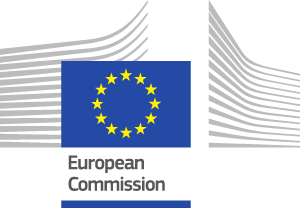The e-learning National Active Charter Training (e-NACT) Project is a DG Justice supported project providing a training methodology and training activities that, coupled with the expertise of the trainers involved, foster the emergence and consolidation of a common culture of fundamental rights.
By discussing their difficulties and best practice with academics and with foreign colleagues with respect to the application of the Charter, legal practitioners will deepen their understanding of the Charter and equip themselves with new instruments and notions in order to use it more effectively.
For this purpose, e-NACT will offer systematic, interdisciplinary, interconnected and combined residential and e-learning training on several areas of law, namely:
e-NACT will create an easy-to-use training toolkit consisting of traditional and e-learning tools that will be the basis for a set of 16 training events targeting legal practitioners at transnational and national levels. It will promote judicial interaction, which will booster mutual trust and cooperation among domestic legal practitioners. Additionally, the Centre’s database of national caselaw will be extended.
Project Activities
Training Events
Throughout the project 16 Training Workshops gathered national judges and lawyers coming from all the Member States. These workshops were structured as experimental laboratories where participants actively engage with the scope of the application and effects of the Charter in different areas of law, as well as the potential for judicial interaction techniques.
Transnational training workshops
The Transnational training workshops provided the participants with a platform for the transnational mutual exchange of their experiences, difficulties and best practices related to the application of the Charter. They offered the environment where there are no longer any of the major obstacles that usually prevent legal practitioners from benefiting from a direct interaction with their colleagues and with academics – time-constraints, linguistic skills, accessibility of sources.
Each Workshop run for 2 days and involved a target group of 30 of legal practitioners.
The training was be based on the training materials drafted within the project:
• thematic Handbooks
• e-booklet on the use of the Charter
• Hypothetical cases
National training workshops
The National Training Workshops were held in the Spring 2019 and replicated the format and methodology experimented with in transnational training workshops. The events involved legal practitioners from the Member State of the partner responsible for the organisation of the event. The national training workshops were the following:
- CIPD – National Training Workshop on Data protection – 4-5 April 2019
- CIPD – National Training Workshop on Freedom of expression – 11-12 April 2019
- UNBR – National Training Workshop on Freedom of expression – 18-19 April 2019
- UL – National Training Workshop on Freedom of expression – 13 May 2019
- UNPR – National Training Workshop on Data protection – 20-21 May 2019
- CIPD – National Training Workshop on Migration and asylum – 30-31 May 2019
- UPF – National Training Workshop on Freedom of expression and Data protection – 30-31 May 2019
- SSM – National Training Workshop on Freedom of expression – 17-19 June 2019
- UNPR – National Training Workshop on Migration and asylum – 27-28 June 2019
Each Workshop involved approximately 20 to 30 legal practitioners, and participants had their travel and per diem costs covered by the Project.
The topic of the national training workshops was defined on the basis of the needs of the judges and lawyers at local level.
The partners of the project are:
- Belgian Judicial Training Institute (IFG/IGO);
- European Inter-University Centre (EIUC);
- Universitè Libre de Bruxelles (ULB);
- Italian School for the Magistracy (SSM);
- Lisbon Centre for Research in Public Law (CIDP);
- National Association of the Romanian Bars (UNBR);
- University of Florence (UNIFI);
- University of Ljubjana (UL);
- University of Parma (UNPR);
- University of Pompeu Fabra (UPF).

‘This project was funded by the European Union’s Justice Programme (2014-2020), under the Grant Agreement no. 763875’






